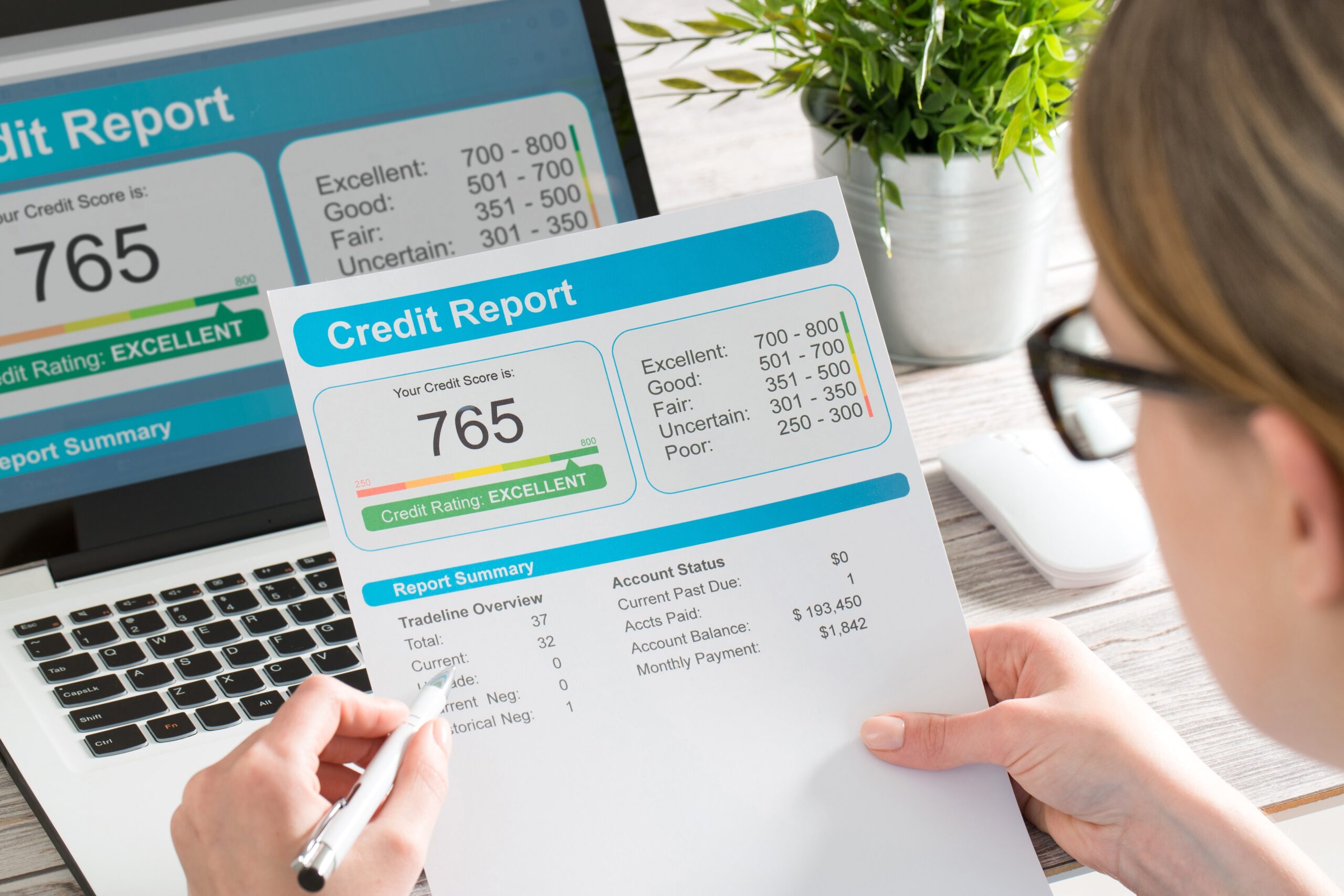NOTICE: Internet Explorer was retired by Microsoft on June 15th, 2022 and is no longer supported. This could change how you access Online Banking.
Our banking centers close at 12pm on 12/24 through Christmas Day. Transactions scheduled at that time will be processed the next business day.
Understanding Credit Scores and Reports

Understanding credit scores and credit reports is crucial for anyone looking to achieve financial success.
Missed payments, regardless of balance size, can seriously harm your credit score. Payment history is the biggest factor affecting your score, so pay bills on time.
Let’s face it: our ability to buy things on credit can make or break our financial goals. A good credit score can make it easier to buy a car, afford a mortgage, or even snag that coveted travel rewards credit card. For instance, imagine you’re in the market for a new car. You find the perfect one, negotiate a great price, and apply for a car loan. However, your loan application gets denied because of a poor credit score. This can be frustrating, especially if you have the income to afford the loan. On the flip side, a good credit score can open up doors to lower interest rates, higher credit limits, and better rewards.
In this article, we’ll go over the basics of credit scores and credit reports, why they matter, and how to improve them.
What’s a Credit Score?
Your credit score is a three-digit number that provides a quick snapshot of your financial habits. The two credit score models you’ll hear about are FICO® and VantageScore®. Most lenders use FICO.
Your FICO credit score is determined by five factors from your credit report:
- Payment history (35%): This includes whether you’ve paid your bills on time.
- Credit utilization (30%): This refers to how much of your available credit you’re using.
- Credit history (15%): This factor considers how long you’ve had credit accounts.
- Credit mix (10%): The types of credit accounts you have, such as credit cards and loans.
- New credit (10%): Recent inquiries for credit.
Your FICO credit score can range from 300 to 850, with higher scores indicating better creditworthiness. By paying your bills on time and keeping your credit utilization low, you can make the biggest impact on your credit score.
What’s a Credit Report?
Now, let’s look at credit reports. A credit report is a detailed summary of your credit history. It includes your personal information, such as your name and address, as well as information about your credit accounts, such as balances and payment history. Your credit report also includes information about credit inquiries, which occur when someone checks your credit, and public records like bankruptcies. However, it does not contain your credit score.
In the U.S., there are three major credit reporting agencies: Equifax, Experian, and TransUnion. It’s important to note that each agency may have slightly different information about your credit history, so it’s a good idea to check all three reports periodically to ensure that your credit information is accurate.
Why Does Having Good Credit Matter?
Lenders will use your credit report – plus your credit score – to determine if you qualify for a credit card or for a loan like a mortgage, car loan, or student loan, and on what terms. Some employers, landlords, and insurers may look at credit reports – and sometimes your credit score – to check for any red flags.
A good credit history can open doors to better credit opportunities. For example, if you have good credit, you may qualify for lower interest rates on loans, which can save you thousands of dollars over time. You may also qualify for higher credit limits and better rewards on credit cards. On the flip side, if you have poor credit, you may struggle to access credit at all, or may be offered credit with unfavorable terms.
How Can You Improve Your Credit Score and Credit Report?
If you have poor credit or want to improve your credit, there are several steps you can take:
- Pay your bills on time. Your payment history is the most important factor in your credit score. Set up automatic payments or reminders to ensure you never miss a payment.
- Pay down your debts. High credit utilization can hurt your credit score, so aim to keep your balances under 30% of your total credit limit. Start by paying off the debts with the highest interest rates.
- Consider a credit-builder loan. If you have no credit history or poor credit, a credit-builder loan can help you establish credit. With this type of loan, you borrow a small amount of money (usually less than $1,000) and make payments over several months. Your payments are reported to the credit bureaus, which can help boost your credit score.
- Get a secured credit card. You’ll make a refundable security deposit and then you’ll receive a credit card with a spending limit equal to that deposit. Use your secured credit card to make everyday purchases, then pay off those balances in full and on time each month. You’ll build up your credit score, and over time, your financial institution may offer you an unsecured credit card and refund your security deposit.
Check Your Credit Report Annually
Regardless of your credit score, it’s important to check your credit reports regularly to ensure they are accurate. By law, you are entitled to one free credit report annually from each of the three major credit reporting agencies. You can access these reports by visiting annualcreditreport.com. Checking your credit reports allows you to catch any errors or fraudulent activity early, before they have a significant impact on your credit score.
In addition to checking your credit reports, it’s also a good idea to monitor your credit score regularly. Many credit card companies and banks offer free credit score monitoring, or you can use a free service like Credit Karma or Credit Sesame.
Keep in mind that improving your credit score takes time and effort. You won’t see a dramatic increase overnight, but by taking steps to improve your credit habits, you can gradually improve your credit score over time.
Knowing the Score
Understanding credit scores and credit reports is crucial for anyone looking to achieve financial success. By knowing the factors that affect your credit score, regularly checking your credit reports, and taking steps to improve your credit habits, you can build a strong credit history and open doors to better credit opportunities.
If you have questions or concerns about your credit or managing your finances, don’t hesitate to reach out to your financial institution for help.
Content is for informational purposes only and is not intended to provide legal or financial advice. The views and opinions expressed do not necessarily represent the views and opinions of WesBanco.
While we hope you find this content useful, it is only intended to serve as a starting point. Your next step is to speak with a qualified, licensed professional who can provide advice tailored to your individual circumstances. Nothing in this article, nor in any associated resources, should be construed as financial or legal advice. Furthermore, while we have made good faith efforts to ensure that the information presented was correct as of the date the content was prepared, we are unable to guarantee that it remains accurate today.
Neither Strategy Academy nor its sponsoring partners make any warranties or representations as to the accuracy, applicability, completeness, or suitability for any particular purpose of the information contained herein. Strategy Academy and its sponsoring partners expressly disclaim any liability arising from the use or misuse of these materials and, by visiting this site, you agree to release Strategy Academy and its sponsoring partners from any such liability. Do not rely upon the information provided in this content when making decisions regarding financial or legal matters without first consulting with a qualified, licensed professional.



